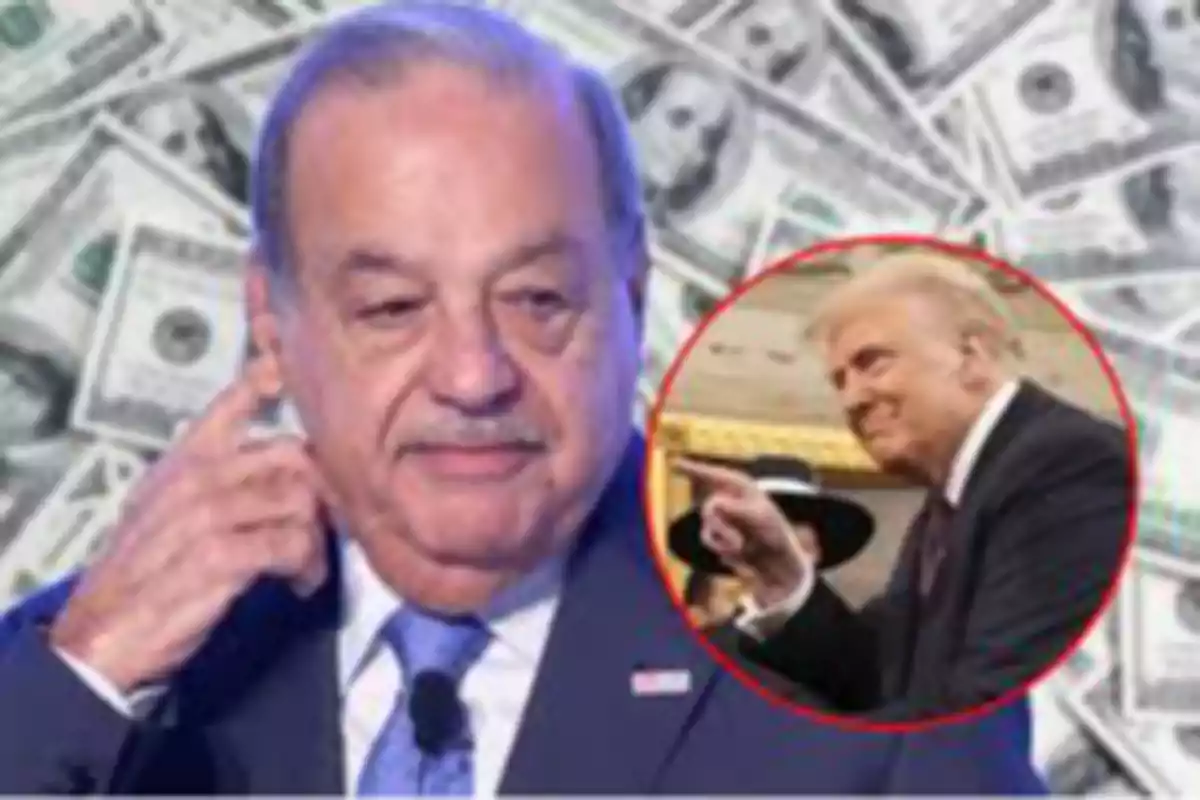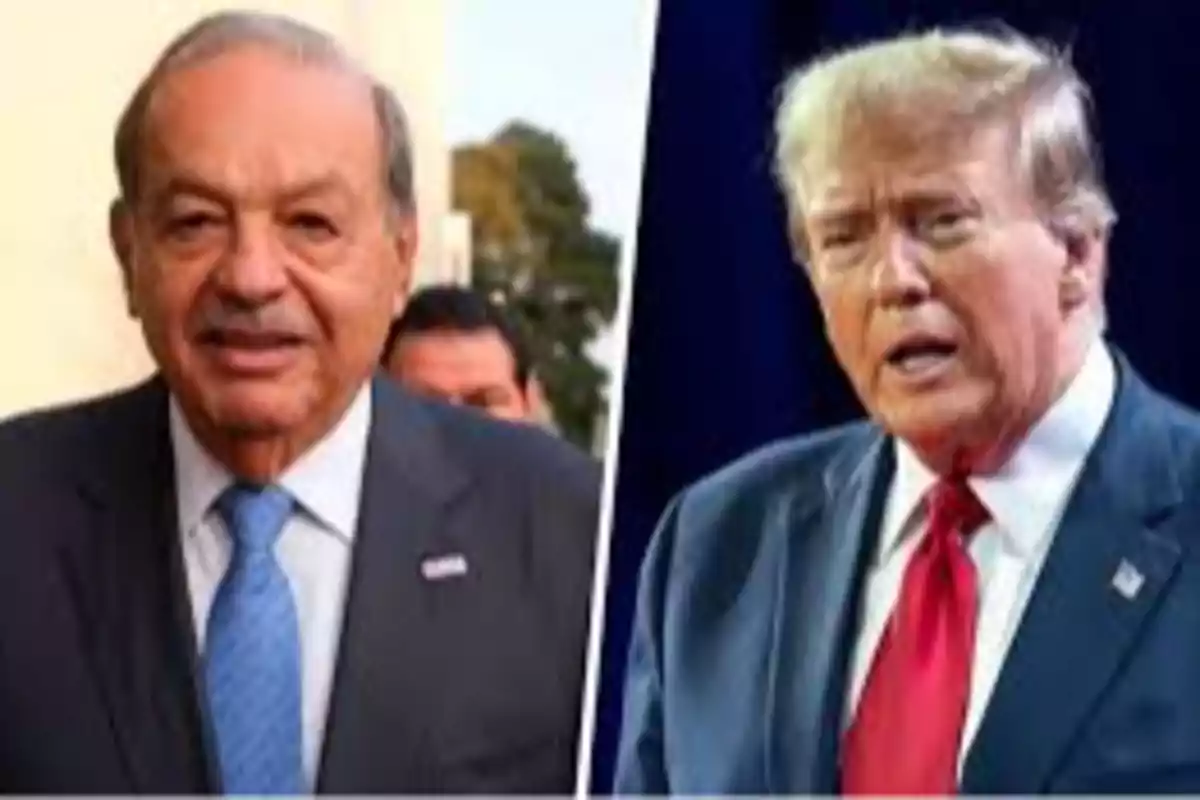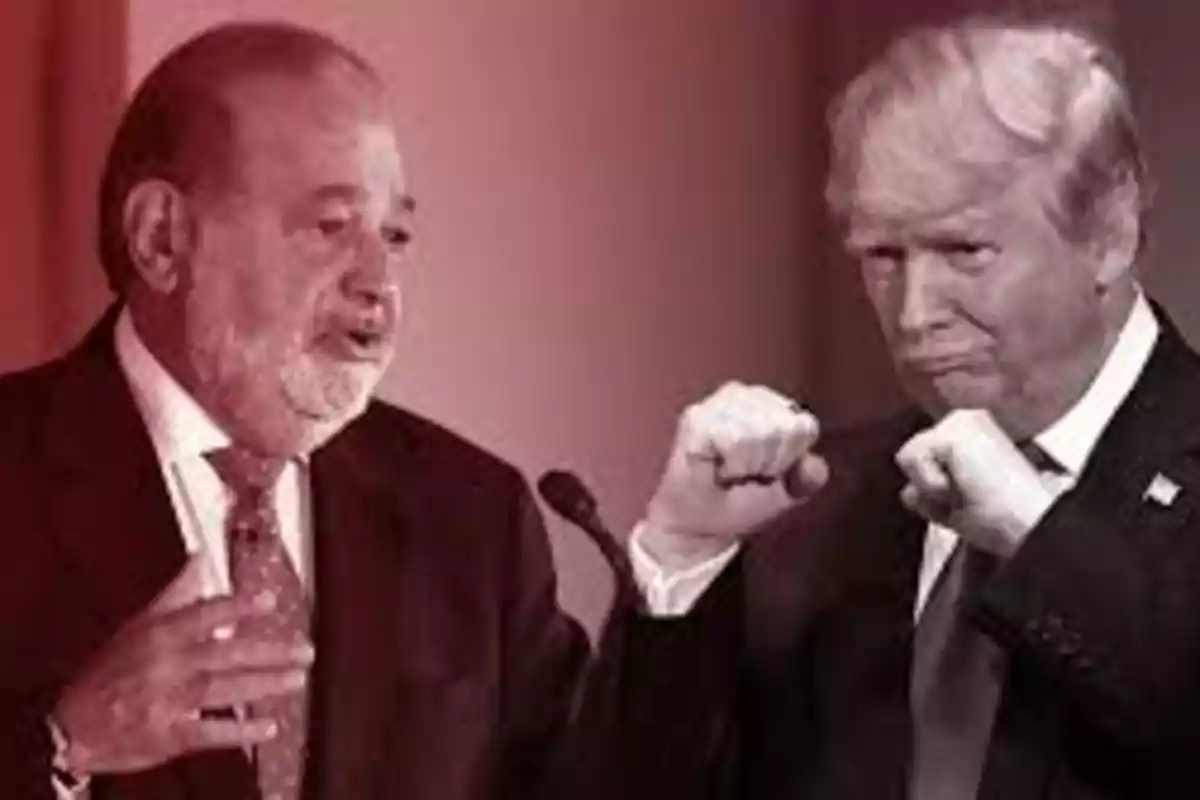
Carlos Slim rejects Trump's tariffs
The businessman criticizes the protectionist policy of the U.S. and the economic fragility of Mexico
The magnate Carlos Slim expressed his concern over Donald Trump's tariff threats. According to the businessman, these measures won't solve United States economic problems. Instead, they will increase inflation and the cost of living in both countries.
Slim also acknowledged that Mexico faces economic difficulties. The first months of Claudia Sheinbaum's government have been marked by economic slowdown, increased deficit, and challenges in attracting foreign investment. Uncertainty about some policies has caused market doubts.

Slim: tariffs affect consumers and businesses
The businessman argued that imposing tariffs on Mexico will harm both consumers and businesses in the U.S. "Companies won't absorb the costs; they'll pass them on to the final price," he warned.
He also highlighted that the economic integration between both countries means any trade barrier affects competitiveness. Key sectors like automotive, manufacturing, and agriculture depend on Mexico. An increase in tariffs would disrupt supply chains and raise costs.
Slim recalled that in 2019, when Trump threatened a 5% tax on Mexican products, the measure only caused market tensions without positive results.
Economic uncertainty: Sheinbaum's challenge
Carlos Slim acknowledged that Sheinbaum's government faces economic challenges that could make Mexico more vulnerable to tariffs.
The economic growth in the last quarter was lower than expected, standing at 1.8%, below the government target.
Additionally, the peso has shown volatility. Although Trump's threats have influenced, unclear economic decisions have also weighed in. Analysts point out that the lack of private investment and uncertainty about infrastructure projects have weakened confidence in the Mexican market.

Public deficit and conflicts with investors
Another concerning point is the public deficit. It has grown more than expected due to high spending on social programs and infrastructure projects without an increase in tax revenues. By 2025, a 5.4% GDP deficit is projected, raising doubts about the country's financial stability.
The energy policy has also caused conflicts with foreign investors. Restrictions on private companies in the energy sector have caused uncertainty, especially in renewable energy projects, limiting the arrival of new capital.
Public and private investment: key to development
Slim emphasized the importance of combining private and public investment. He supported projects like the Interoceanic Corridor of the Isthmus of Tehuantepec, which aims to improve trade and industry. However, he warned that clear conditions are needed to attract foreign capital.
The businessman also highlighted the need to modernize energy and telecommunications infrastructure. Mexico has the potential to become a leader in technology and clean energy. For this, the government must guarantee legal and financial certainty to investors.
Regarding the banking sector, Slim noted that Mexico still has a solid financial system. However, he insisted that financial inclusion must be improved to boost economic growth in key sectors like trade and manufacturing industry.
More posts: